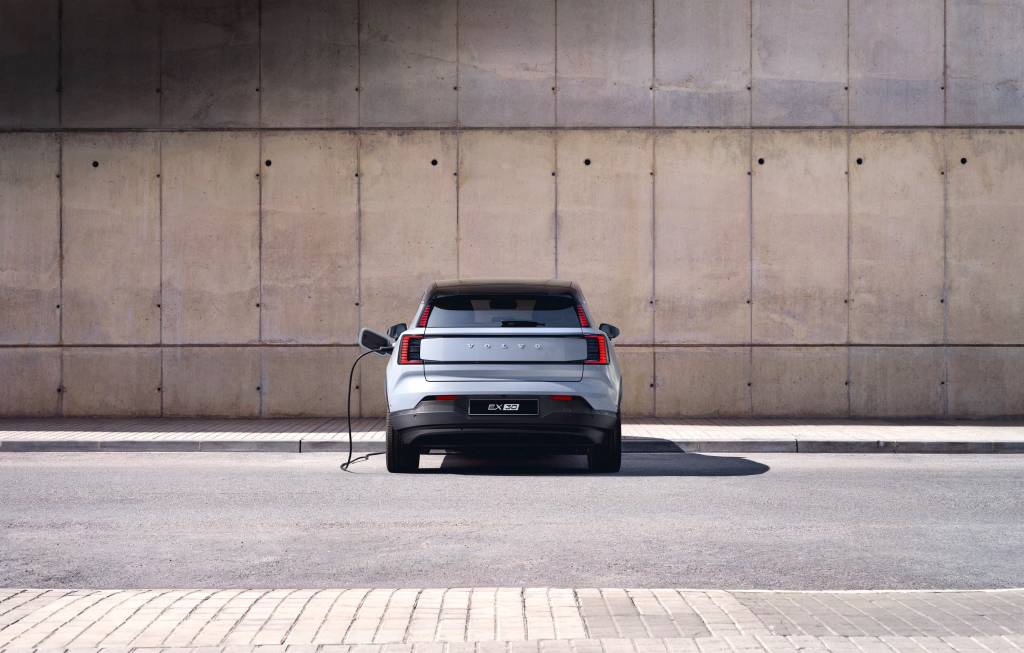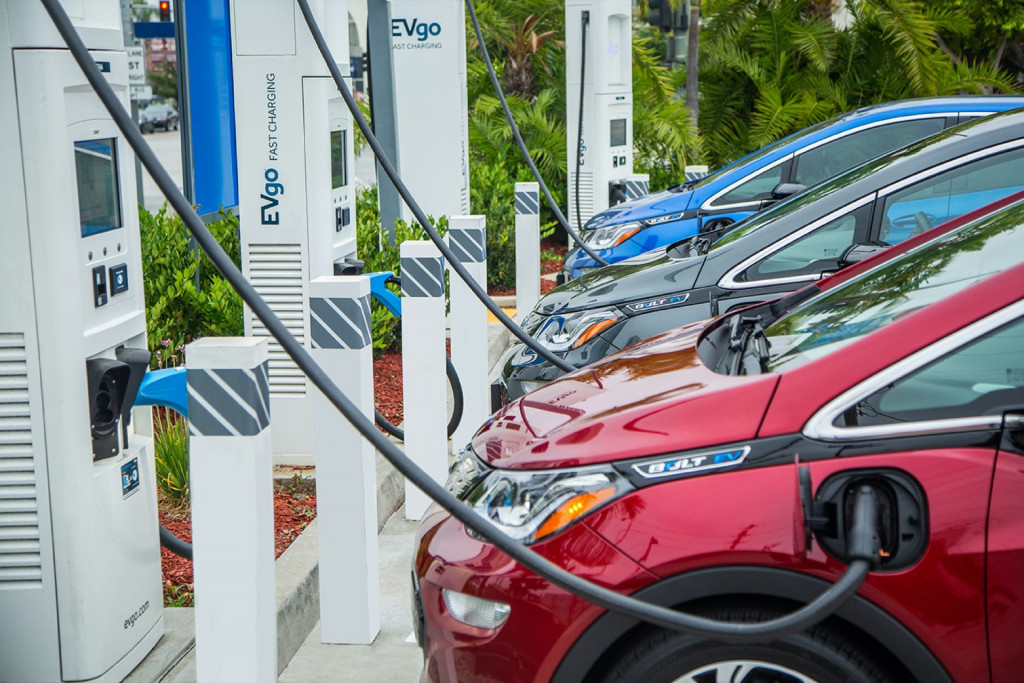California is spending $38 million to help expand availability of EV fast-charging for low-income and disadvantaged communities.
The California Energy Commission (CEC), the state’s energy regulator, is now accepting applications for rebates that can be put toward the cost of installing DC fast-chargers with a minimum power rate of 150 kw by businesses, nonprofits, tribes, and public entities in 28 counties across the state.

Volvo EX30 charging
Rebates can cover up to 50% of a charging project’s total costs, capping at $50,000 for chargers ranging from 150 kw to 274.99 kw and $100,000 for chargers of 275 kw and above. The window for applications opened September 13 and closes December 12.
This is coordinated policy between state agencies as California seeks to expand EV adoption to all segments of the population. The California Air Resources Board (CARB) is also shifting to make the state’s EV purchase incentives more helpful to low-income drivers. In August, CARB announced that income-based incentives will be the new norm statewide, with lower-income applicants getting priority.

GM and EVgo expand major-metro fast charging
EVs have cracked 15% of new-car sales in California, and with plug-in hybrids factored in, one in four new vehicles sold in the state now has a charge port. Technically, California’s falling short on the sheer number of public EV chargers relative to registered EVs. But a recent analysis looking at the full picture, including charge power and charge points per road length, showed the state to be doing better than the simple ratio suggests.
Expansion of charging infrastructure isn’t the only issue, though. A study published last year of fast-chargers in the state found reliability poor. The study looked at 181 California DC fast-charging sites and found 22.7% of chargers to be “nonfunctioning,” with many seemingly having long periods of downtime.

